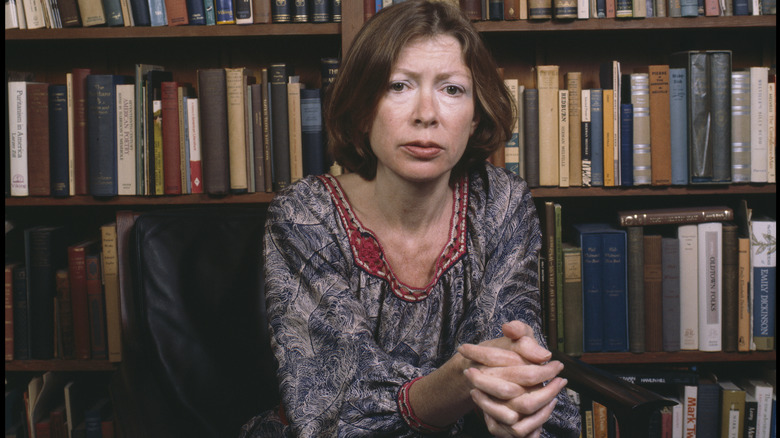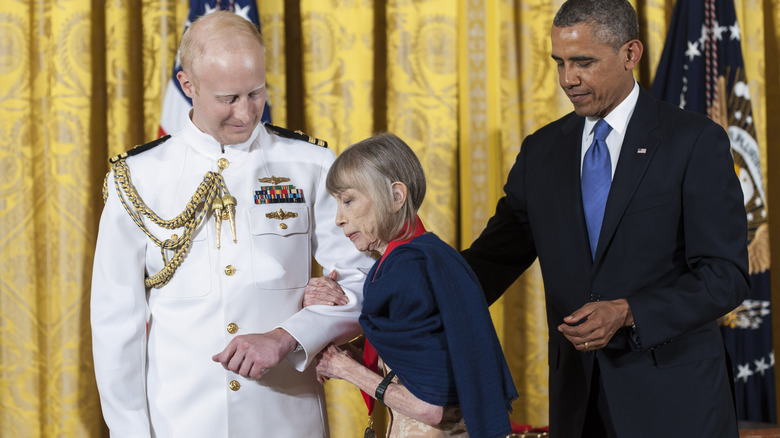Joan Didion, A Star Is Born Screenwriter And Legendary Author, Has Died At 87
Joan Didion, the prolific author, screenwriter, and journalist who co-wrote the screenplays for "A Star is Born," "True Confessions," and more has died at the age of 87 in her Manhattan home. As a journalist, Didion reported on counter-culture and social movements; along with writers like Truman Capote, Norman Mailer, and Hunter S. Thompson, she helped usher in the age of New Journalism, which focused on immersing the reporter in a story instead of remaining distanced. Much of Didion's reporting focused on her home state of California, a place that she shaped as surely as it shaped her.
An Incredible Legacy
According to Didion's publisher, Knopf (via The New York Times), the cause of death was Parkinson's disease. Didion was preceded in death by her frequent collaborator and husband, John Gregory Dunne, with whom she wrote the screenplays "Panic in Needle Park," "Play It as It Lays," "A Star is Born," "True Confessions," and "Up Close and Personal." Dunne died of a heart attack in 2003. Didion and Dunne's adoptive daughter, Quintana Roo Dunne, died in 2005. Didion was candid about her grief, writing about it repeatedly throughout the rest of her life. In her book of essays, "The Year of Magical Thinking," Didion reflected on the nature of life and death:
"We are not idealized wild things. We are imperfect mortal beings, aware of that mortality even as we push it away, failed by our very complication, so wired that when we mourn our losses we also mourn, for better or for worse, ourselves. As we were. As we are no longer. As we will one day not be at all."
Over her long and prolific career, Didion wrote five novels, 14 nonfiction books, six screenplays, and a play. She also reported for a range of publications, including Life, Vogue, The New York Review of Books, and The Saturday Evening Post. Her career kicked off when she won a spot as guest fiction editor for Mademoiselle magazine in her junior year of college at the University of California, Berkeley. A year later she would win another writing contest, this time earning herself a spot writing promotional pieces for the magazine.
Didion's reporting grew more unconventional as she aged, and she became highly critical of the way the media portrayed certain events. She was the first journalist to suggest the innocence of the Central Park Five in 1989, and she was openly concerned about the way political campaigns were covered. She was presented with the National Humanities Medal by President Barack Obama in 2012. The president called her "one of our sharpest and most respected observers of American politics and culture." In 2017, Didion's nephew, actor Griffin Dunne, released a documentary about his aunt called "Joan Didion: The Center Will Not Hold."
In Didion's collection of essays, "The White Album," she begins with a now-famous line: "We tell ourselves stories in order to live." Well, Ms. Didion, you certainly lived.

